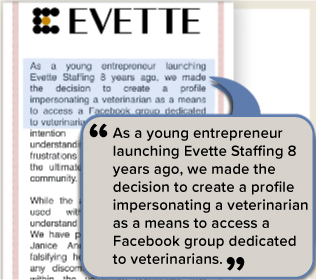Hello 👋
Welcome back to another edition of Weekend Rounds!
Whether you are enjoying football, family, or none of the above on this U.S. Thanksgiving Weekend, we hope you found a fantastic deal this Black Friday, or a good cause to support on Giving Tuesday.
Thanksgiving has made us realize that basically everything from now until the New Year has something to do with animals.
The meals are traditionally focused on the agriculture side of our profession, but animals play a key role in the pop culture and mythology of the season as well. Maybe you’re watching a new Christmas movie like Red One that stars both The Rock and a giant Polar Bear, or Hot Frosty - the vet from Schitt’s Creek’s new Christmas rom-com, . Even the hottest movie of the season, Wicked, is about animal rights. You can read about it here, but fair warning that the article contains some pretty massive spoilers.
Hey, even the big man in red relies on reindeer to get things done on Christmas. Speaking of which, we hear the vet in Santa’s workshop reads Weekend Rounds. Which is no surprise, since all the smartest vets do 😉
Here’s what we’re covering:
🐕 Dogs are amazing for your mental health
🙋♀️ Veterinary women leaders
🎓 Ethical Issues at Cambridge
🚀 Quick hits
🐕
Dogs are Amazing
Here’s something we all intrinsically know, but might now have had the science to explain: dogs are awesome. Being around a dog just makes you feel good. And we we know from personal experience that dogs are the best companions to writing a newsletter when you’ve been sick for a whole week (he types as he pets his 4-legged friend).
Here’s the abridged version:
They fight off loneliness and its associated health risks
They encourage one to engage with community (ex. at dog parks)
They are stress relief machines - both short term and long term
They are the most non-judgemental companion - an important reminder of what is important in today’s polarized world
So what are you waiting for? Go get another dog!
🙋♀️
Women in Veterinary Leadership
Last week VIN News Service had a great piece outlining the how female veterinarians have made significant strides in leadership roles over the past 15 years, but challenges remain.
Women make up 67% of veterinarians and 83% of veterinary students in the U.S. However, leadership positions, especially in the corporate sector, are still predominantly held by men. The Women’s Veterinary Leadership Development Initiative (WVLDI), established in 2013, has been instrumental in addressing these disparities and encouraging women to pursue leadership roles.
Pioneering female veterinarians like Dr. Mary Beth Leininger and Dr. Joan Hendricks have paved the way for future generations, despite facing significant resistance and discrimination. Their stories highlight the importance of mentors and allies in supporting women’s advancement in the profession. Progress is evident in professional associations and educational institutions, where women now hold many top positions. However, corporate leadership remains a challenging area, with few women in executive roles.
Despite the progress, subtle forms of discrimination and cultural assumptions about women’s roles persist. Female veterinarians continue to face challenges in achieving equality in leadership, particularly in the corporate sector. Continued efforts are needed to support and encourage women in veterinary leadership, ensuring the profession reflects the demographics of its practitioners and fosters a diverse and inclusive environment.
🎓
Ethical Concerns at Cambridge
According to reporting from both the BBC and The Guardian, the University of Cambridge’s veterinary school is under scrutiny after an investigation from the Royal College of Veterinary Surgeons. The college is now only conditionally accredited after failing to meet 50 of 77 standards.
According to the reports, the school is facing both allegations of ethical concerns over the treatment of animals and racism. The ethical concerns stem from the treatment of farm animals who are reportedly euthanized rather than put in isolation due to a lack of adequate facilities.
And the accusations of racism and discrimination from students have reportedly been ignored or not taken seriously. This is of particular issue on placements where discriminatory behavior is not adequately addressed.
It is unlikely that Cambridge will ultimately lose their accreditation. But it is notable that such a high profile institution is under such scrutiny. We will be sure to stay on top of any developments and share them in future editions of Weekend Rounds. The college has until September 2025 to make changes.
🚀
Quick Hits
Here are some of the other stories that caught our eye and we're following this week from around the veterinary world and animal kingdom:





